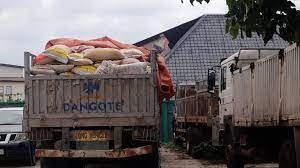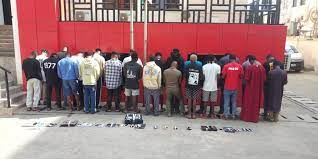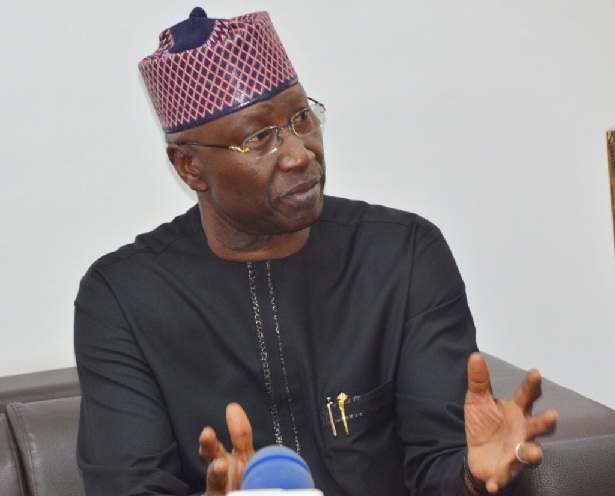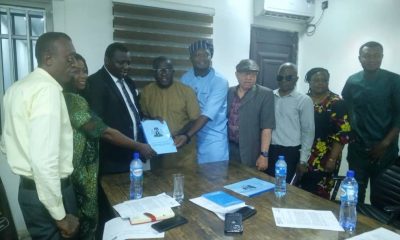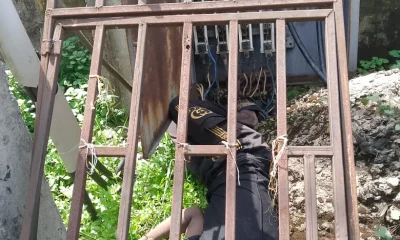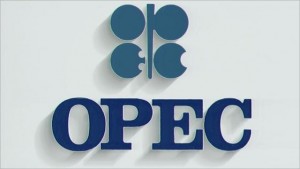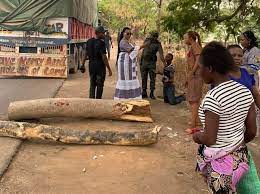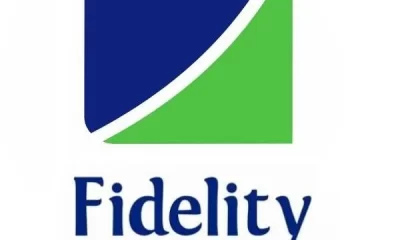Economy
Nigeria Needs $1.5trn to Bridge Infrastructure Gap in 10 Yrs – Buhari
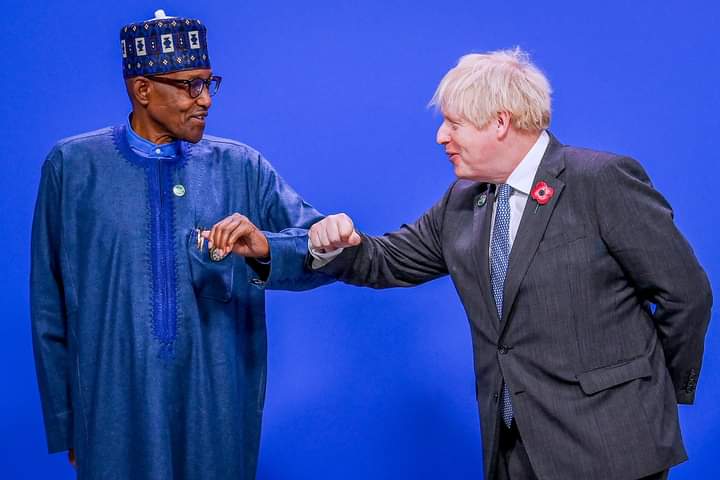
President Muhammadu Buhari says 1.5 trillion dollars is needed by Nigeria over a ten-year period, to achieve an appreciable level of the National Infrastructure Stock.
He gave the figure on Tuesday in Glasgow at a COP 26 high-level side event on improving global infrastructure hosted by President Joe Biden of the United States, EU Commission President, Von Der Leyen and the UK Prime Minister, Boris Johnson.
Malam Garba Shehu, the President’s spokesman in a statement on Tuesday in Abuja, quoted the Nigerian leader as saying that ‘‘Nigeria is ready for your investments in infrastructural development in the country.
‘‘My administration has established a clear legal and regulatory framework for private financing of infrastructure to establish a standard process, especially on the monitoring and evaluation process.
‘‘We look forward to working with you in this regard.’’
He also declared that his administration had taken infrastructure expansion in Nigeria seriously, conscious of the fact that new investments in critical sectors of the economy would aid lifting 100 million Nigerians out of poverty by 2030.
‘‘There is a nexus between infrastructure development and the overall economic development of a nation.
‘‘My administration identified this early enough as a major enabler of sustainable economic development and the realization of other continental and global development aspirations particularly the 2030 Agenda for Sustainable Development Goals.
‘‘On my assumption of office in 2015, Nigeria faced a huge infrastructure deficit and the total National Infrastructure Stock was estimated at 35% of our Gross Domestic Product.
‘‘In solving these problems, we embarked on a massive infrastructure expansion programme in the areas of Health care, Education, Transportation, Manufacturing, Energy, Housing, Agriculture, and Water Resources.
‘‘We provided more financial resources for these policies, charted new international partnerships and pursued liberalization policies to allow private sector participation.
‘‘We introduced the revised National Integrated Infrastructure Master Plan – a policy document that ensures our infrastructure expansion projects is cross-sectorally integrated and environmentally friendly, ’’ he said.
The president welcomed the G7 countries for their ground-breaking plan to mobilise hundreds of billions of dollars of infrastructure investment for low – and middle-income countries.
He noted that the “Build Back Better World” plan, an initiative of the G7 countries, is expected to be a values-driven, high-standard, and transparent infrastructure partnership.
‘‘It is our fervent hope and expectations that this plan will be pursued to its logical conclusion in order to bridge the infrastructural gap between the North and South.”
The president also used the occasion to outline the principles, values and standards that Nigeria would like to see from infrastructure initiatives and the challenges the country had faced in partnering with donors on infrastructure development.
‘‘The aim of pursuing quality infrastructure investment is to maximize the positive economic, environmental, social, and development impact of infrastructure and create a virtuous circle of economic activities, while ensuring sound public finances.
‘‘This virtuous circle can take various forms in stimulating the economy,” he said.
The Nigerian leader noted that infrastructure investment should, therefore, take into account economic, environmental and social, and governance aspects, guided by a sense of shared, long-term responsibility for the planet, consistent with the 2030 Agenda for Sustainable Development.
He added that the positive and negative impacts of infrastructure projects on ecosystems, biodiversity, climate, weather and the use of resources should be internalised by incorporating these environmental considerations over the entire process of infrastructure investment.
‘‘Domestic resource mobilization is critical to addressing the infrastructure financing gap.
”Assistance for capacity building, including for project preparation, should be provided to developing countries with the participation of international organizations.
‘‘Quality infrastructure investment also needs to be tailored to individual country conditions and consistent with local laws and regulations.
‘‘Furthermore, Infrastructure projects should align with national strategies and nationally determined contributions for those countries determined to implement them, and with transitioning to long-term low emissions strategies, while being mindful of country circumstances,’’ he said.
The president also called for the environmental impact of infrastructure investment to be made transparent to all stakeholders.
According to him, this will enhance the appreciation of sustainable infrastructure projects and increase awareness of related risks. (NAN)
Economy
34 States Shunned 35th Enugu Int’l Trade Fair
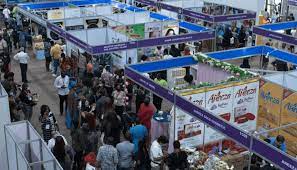
No Fewer than 34 states in the country failed to honour invitation to attend the just-concluded 35th Enugu International Trade Fair.
Reports says that only the Federal Capital Territory (FCT), Abuja; Ebonyi State and the host state, Enugu State, graced the 11-day international goods, services and idea showcasing fiesta.
The fair, which began on April 5 and ended on Monday, April 15, was themed: “Promoting made-in-Nigeria products for global competitiveness.
”Reacting, the Director-General of Enugu Chamber of Commerce, Mr Uche Mbah, said that the chamber followed due diligence in the invitation of all states to the fair.
Mbah noted that official letters were sent and official follow-up on the letters were made to ensure their presence and availability.
According to him, “we did everything to get them to add colour and increase the showcasing of products from different parts of the country and their investment viability.
“We did put in spirited efforts to see that all states participated, as most of them do previously.
“But it is unfortunate that many did not respond after receiving official letters, phone calls and interpersonal follow-ups were made.
“We got clear assurances from Kano State but they did not show up.
“We pushed harder to get Abia State but in the end, we were told that the governor did not approve,” he said.
Reports says that over 100 organisations were at the fair, which included: over 50 private companies as well as over 45 Federal and State government ministries, agencies and departments. (NAN)
Economy
Nigeria’s Inflation Hit 33.20% in March, says NBS

The National Bureau of Statistics (NBS) says Nigeria’s headline inflation rate increased to 33.20 per cent in March 2024.
The NBS said this in its Consumer Price Index (CPI) and Inflation Report for March, which was released in Abuja on Monday.
According to the report, the figure is 1.50 per cent points higher compared to the 31.
It said on a year-on-year basis, the headline inflation rate in March 2024 was 11. 16 per cent higher than the rate recorded in March 2023 at 22.04 per cent.
In addition, the report said, on month-on-month basis, the headline inflation rate in March 2024 was 3.02 per cent, which was 0.10 per cent lower than the rate recorded in February 2024 at 3.12 per cent.
“This means that in March 2024, the rate of increase in the average price level is less than the rate of increase in the average price level in February 2024.”
The report attributed the increase in the headline index for March 2024 on a year-on-year basis and month-on-month basis to increase in some goods and services at the divisional level.
It said these increases were observed in food and non-alcoholic beverages, housing, water, electricity, gas, and other fuel, clothing and footwear, and transport.
Others, it said, were furnishings, household equipment and maintenance, education, health, miscellaneous goods and services, restaurants and hotels, alcoholic beverage, tobacco and kola, recreation and culture, and communication.
It said the percentage change in the average CPI for the 12 months ending March 2024 over the average of the CPI for the previous corresponding 12-month period was 27.13 per cent.
“This indicates a 6.76 per cent increase compared to 20.37 per cent recorded in March 2023”, it said.
The report said the food inflation rate in March 2024 increased to 40.01 per cent on a year-on-year basis, which was 15.56 per cent higher compared to the rate recorded in March 2023 at 24.45 per cent.
“The rise in food inflation on a year-on-year basis is caused by increases in prices of Garri, Millet, Akpu (uncooked fermented, which are under bread and cereals class), Yam Tuber, and Water Yam.
“Others are Dried Fish Sadine, Mudfish Dried, Palm Oil, Vegetable Oil, Beef Feet, Beef Head, Liver, Coconut, Water Melon, Lipton Tea, Bournvita, and Milo”, NBS said.
It said on a month-on-month basis, the food inflation rate in March was 3.62 per cent, which was a 0.17 per cent decrease compared to the rate recorded in February 2024 at 3.79 per cent.
“The fall in food inflation on a month-on-month basis was caused by a decrease in the average prices of Guinea corn flour, Plantain Flour etc (under Bread and Cereals class); Yam, Irish Potato, and CocoYam.
“Others are Titus fish, Mudfish Dried, Lipton, Bournvita, and Ovaltine”, it said.
The report said that “all items less farm produce and energy’’ or core inflation, which excludes the prices of volatile agricultural produce and energy, stood at 25.90 per cent in March on a year-on-year basis.
“This increased by 6.26 per cent compared to 19.63 per cent recorded in March 2023.’’
“The exclusion of the PMS is due to the deregulation of the commodity by removal of subsidy.”
It said the highest increases were recorded in prices of bus journey within the city, actual and imputed rentals for housing, consultation fee of a medical doctor, etc.
The NBS said on a month-on-month basis, the core inflation rate was 2.54 per cent in March 2024.
“This indicates a 0.37 per cent increase compared to what was recorded in February 2024 at 2.17 per cent.”
“The average 12-month annual inflation rate was 22.26 per cent for the 12 months ending March 2024, this was 5.04 per cent points higher than the 17.22 per cent recorded in March 2023”, it said.
The report said on a year-on-year basis in March 2024, the urban inflation rate was 35.18 per cent, 12.11 per cent higher compared to the 23.07 per cent recorded in March 2023.
The report said on a year-on-year basis in March 2024, the rural inflation rate was 31.45 per cent, which was 10.37 per cent higher compared to the 21.09 per cent recorded in March 2023.
“On a month-on-month basis, the rural inflation rate was 2.87 per cent, which decreased by 0.20 per cent compared to February 2024 at 3.07 per cent’’, it said.
On states’ profile analysis, the report showed that in March, all items inflation rate on a year-on-year basis was highest in Kogi at 39.97 per cent, followed by Bauchi at 38.34 per cent, and Kwara at 38.10 per cent.
It, however, said the slowest rise in headline inflation on a year-on-year basis was recorded in Borno at 25.78 per cent, followed by Benue and Taraba at 28.12 per cent, and Katsina at 28.32 per cent.
The report, however, said in March 2024, all items inflation rate on a month-on-month basis was highest in Zamfara at 3.90 per cent, followed by Abia at 3.89 per cent, and Ondo at 3.75 per cent.
“Borno at 1.46 per cent, followed by Yobe at 1.84 per cent and Adamawa at 1.85 per cent recorded the slowest rise in month-on-month inflation”, NBS said.
The report said on a year-on-year basis, food inflation was highest in Kogi at 48.46 per cent, followed by Kwara at 46.18 per cent, and Akwa Ibom at 45.18 per cent.
“Nasarawa at 33.76 per cent, followed by Borno at 34.28 per cent and Bauchi at 34.38 per cent recorded the slowest rise in food inflation on a year-on-year basis’’, it said.
The report, however, said on a month-on-month basis, food inflation was highest in Abia at 5.17 per cent, followed by Cross River at 5.14 per cent, and Bayelsa at 4.75 per cent.
“Cross River stood at 1.59 per cent, followed by Yobe at 2.08 per cent and Adamawa at 2.12 per cent, recorded the slowest rise in inflation on a month-on-month basis”, it said. (NAN)
Economy
Naira Makes Huge Recovery, Gains 7.2% Against Dollar
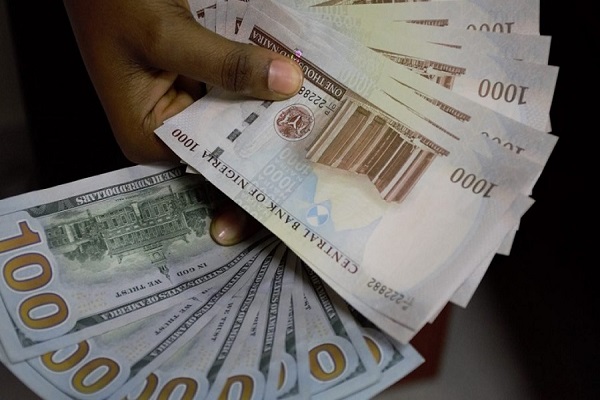
The Naira on Friday experienced huge appreciation at the official market, trading at N1,142.38 to the dollar.
Data from the official trading platform of the FMDQ Exchange, a platform that oversees the Nigerian Autonomous Foreign Exchange Market (NAFEM), revealed that the Naira gained N88.
23.This represents a 7.16 per cent gain when compared to the previous trading date on Monday, April 8, exchanging at N1,230.
61 to a dollar before the Sallah holiday.The total daily turnover increased to $281.34 million on Friday up from $125.55 million recorded on Monday.
Meanwhile, at the Investor’s and Exporter’s (I&E) window, the Naira traded between N1,265 and N1,100 against the dollar.
Economic experts have continued to praise both fiscal and monetary policies of President Bola Tinubu’s administration responsible for the steady Naira appreciation.
The CBN, during its policy meetings held in February and March, implemented a total of 600 basis points in interest rate increases.
This helped tackle dollar scarcity, reduced volatility, and decreased reliance on parallel markets. (NAN)


